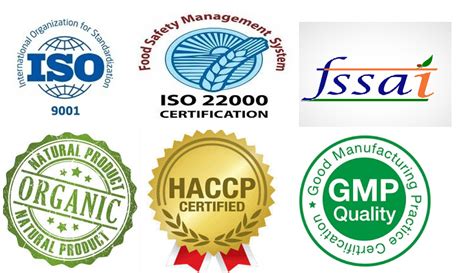Berikut adalah postingan blog tentang sertifikasi makanan dan minuman:
Food and Beverage Certifications: A Comprehensive Guide
The food and beverage industry is a dynamic and ever-evolving sector. Maintaining high standards of quality, safety, and hygiene is paramount. This is where food and beverage certifications come in. These certifications demonstrate your commitment to excellence, build consumer trust, and can significantly boost your business's reputation. This comprehensive guide will explore the various certifications available, their benefits, and how to choose the right one for your business.
What are Food and Beverage Certifications?
Food and beverage certifications are third-party validations that verify a company's adherence to specific standards and best practices within the industry. They cover a range of aspects, from food safety and hygiene to ethical sourcing and sustainable practices. These certifications are often required by retailers, importers, and consumers alike, acting as a seal of approval and a guarantee of quality.
Types of Food and Beverage Certifications: A Detailed Overview
Several certifications exist, each focusing on different aspects of food production and handling. Here are some of the most prominent ones:
-
Hazard Analysis and Critical Control Points (HACCP): A globally recognized system for identifying and preventing biological, chemical, and physical hazards in food production. HACCP certification is often a prerequisite for other certifications and is crucial for food safety.
-
Good Manufacturing Practices (GMP): GMP certifications outline the minimum standards for manufacturing, processing, packing, or holding of food products. They focus on hygiene, sanitation, and preventing contamination. These are essential for maintaining a safe and efficient production environment.
-
ISO 22000: An internationally recognized standard for food safety management systems. It integrates HACCP principles with other management systems to provide a holistic approach to food safety.
-
Organic Certification: This certification verifies that agricultural products are produced using environmentally sound practices, without synthetic pesticides or fertilizers. It appeals to consumers increasingly concerned about sustainable and ethical food production.
-
Fair Trade Certification: Guarantees that producers in developing countries receive fair prices for their products, ensuring fair labor practices and supporting sustainable livelihoods. This is particularly important for ethically-conscious consumers.
-
Kosher and Halal Certifications: These religious certifications confirm that food products meet specific dietary requirements according to Jewish (Kosher) and Islamic (Halal) laws. These certifications target significant consumer groups with specific dietary needs.
Benefits of Obtaining Food and Beverage Certifications
The benefits of acquiring food and beverage certifications are numerous and extend beyond simply meeting regulatory requirements. Key advantages include:
-
Enhanced Consumer Trust: Certifications demonstrate your commitment to quality and safety, building consumer confidence in your products.
-
Improved Brand Reputation: Certifications can enhance your brand's image and increase its credibility in the market.
-
Increased Market Access: Many retailers and importers require specific certifications before they will consider stocking your products.
-
Competitive Advantage: Certifications can differentiate your business from competitors and give you an edge in the marketplace.
-
Reduced Risks: By adhering to strict standards, you minimize risks of contamination, recalls, and legal issues.
-
Improved Efficiency: Certification processes often highlight areas for improvement in your operations, leading to increased efficiency and productivity.
Choosing the Right Certification for Your Business
Selecting the appropriate certification depends on several factors, including:
-
Your target market: Consider the needs and preferences of your customers. Organic certifications, for instance, will appeal to environmentally conscious consumers.
-
Your products: Some certifications are more relevant to specific types of food products than others.
-
Your business goals: Determine which aspects of your business you want to highlight and which certifications best align with your overall objectives.
-
Regulatory requirements: Certain certifications may be mandatory or strongly recommended in your region or for specific types of food products.
Conclusion:
Obtaining food and beverage certifications is an investment that can significantly benefit your business. By demonstrating your commitment to quality, safety, and sustainability, you build consumer trust, enhance your brand reputation, and unlock new market opportunities. Carefully consider your business needs and choose the certifications that best align with your goals. Remember to thoroughly research each certification to ensure it aligns with your business operations and target market. This proactive approach to quality and safety is key to success in today's competitive food and beverage industry.
